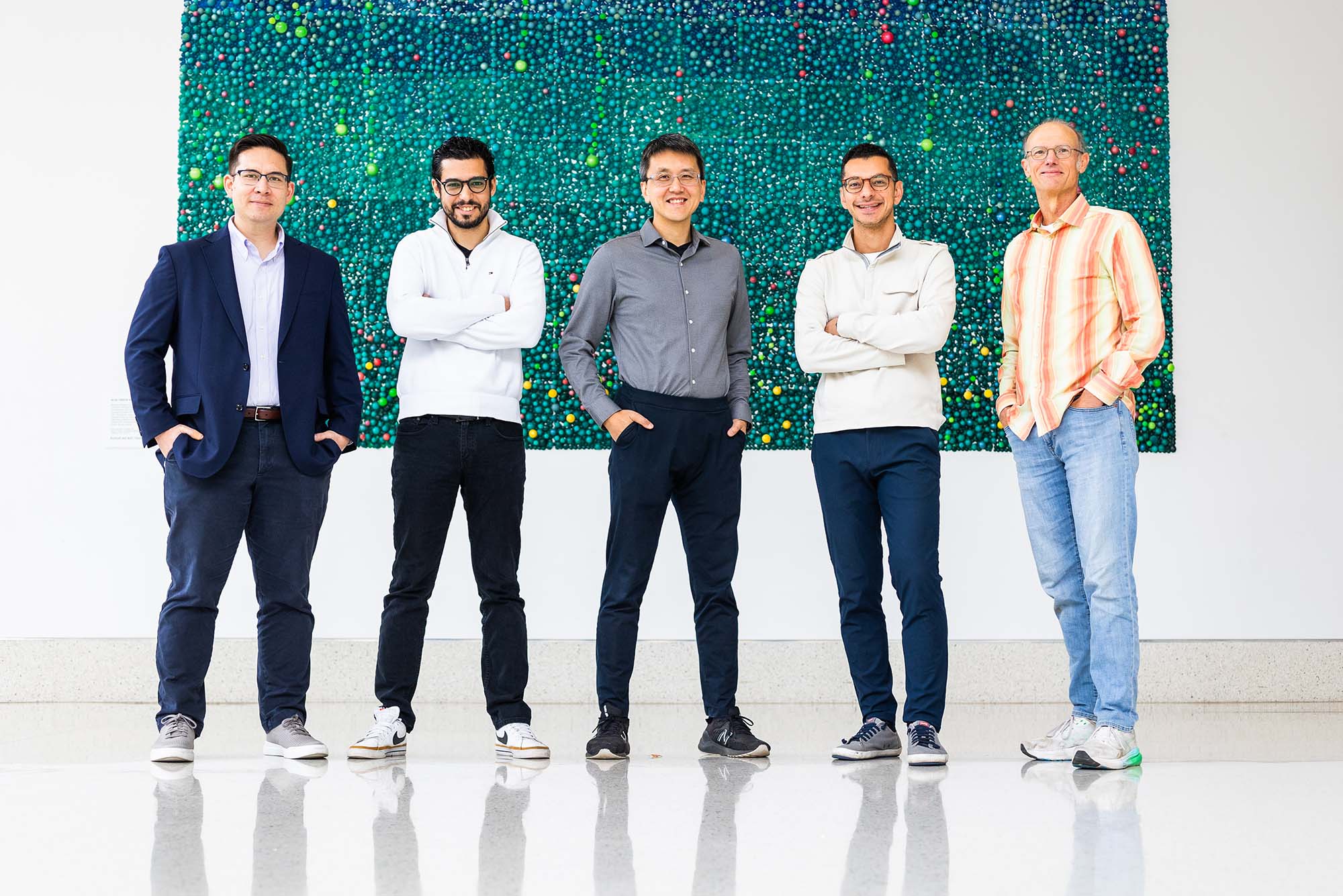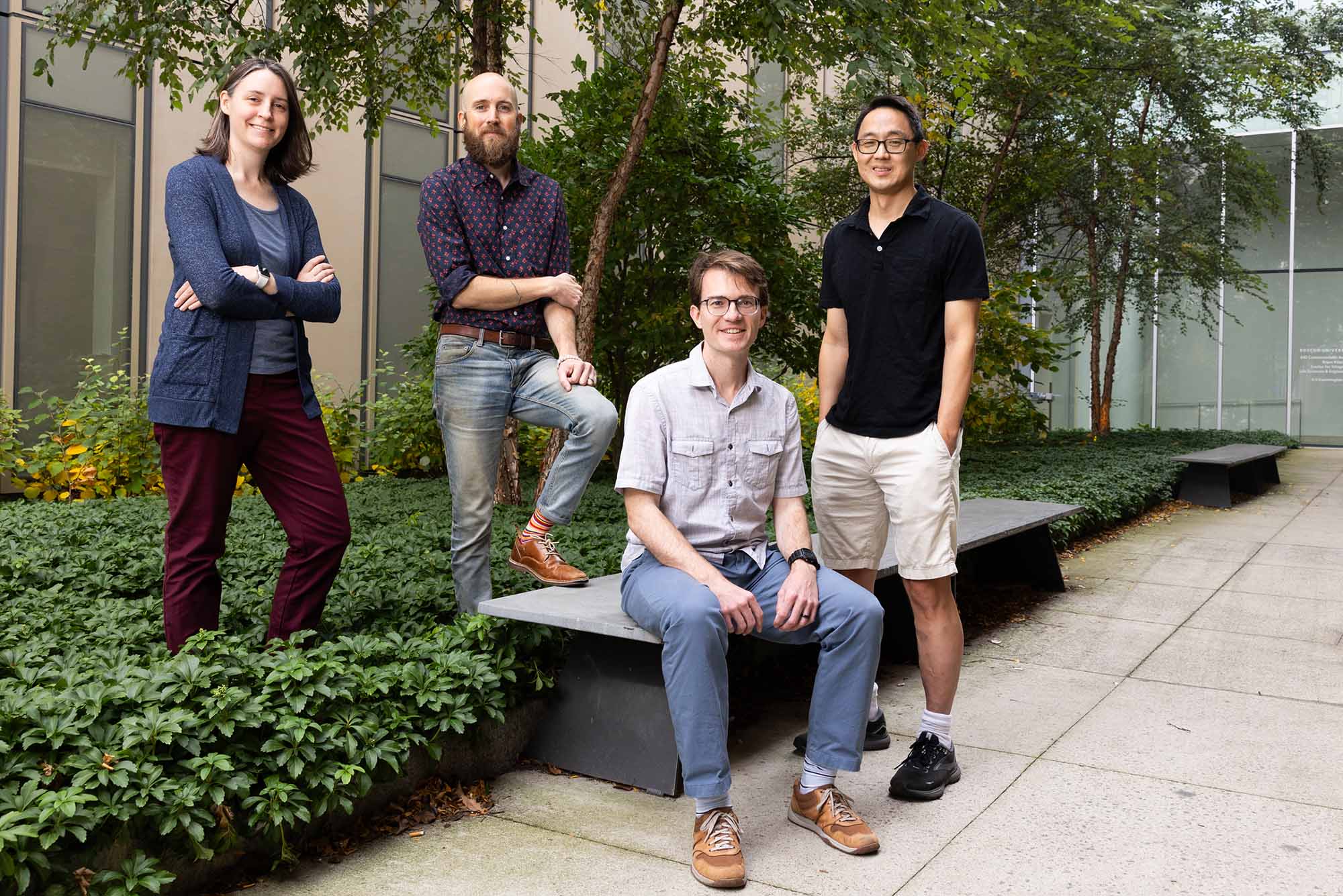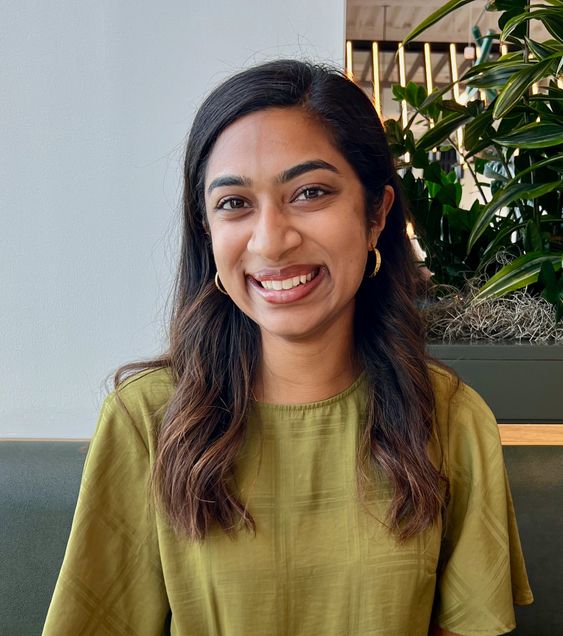News
Anne Curtis Receives Neurophotonics T32 Fellowship

Anne Curtis of the Chantranupong Lab recently received a Neurophotonics T32 Fellowship. Recipients of this fellowship are expected to continue to complete all the requirements of the NPC Research Training Program, including taking a leadership role in an NPC Committee and/or assisting with future bootcamps.
Anne is studying neuromelanin, a byproduct of dopamine metabolism, to investigate the function of this pigment and how it influences vulnerability during Parkinson’s Disease. She is modelling this in a midbrain organoid system. Furthermore, she plans to utilize Interference Differential Absorbance Confocal (IDAC) microscopy, developed by the Mertz Lab, to track neuromelanin with improved resolution.
Read the full announcement here.
Congratulations, Anne!
Lily Fenton Accepted into NSF Graduate Research Traineeship Program in Biological Feedback Control

Lily Fenton of the Dunlop Lab was accepted as a trainee in the NSF Graduate Research Traineeship Program in Biological Feedback Control for the 2025-2026 academic year. This program is an NSF funded research traineeship combining the study of the engineering principles in feedback control with investigations of how biological systems self-regulate, adapt, heal and evolve. The NSF Research Traineeship (NRT) program seeks to provide effective training of STEM graduate students in high priority interdisciplinary or convergent research areas. Selected students participate in an industry internship, professional development events, and a co-mentored dissertation project in a breadth of topic areas including molecular level control algorithms, microbial feedback control systems, control of tissues homeostasis and regeneration, biohybrid and bioinspired engineered systems.
Lily is investigating methods of optogenetic post-translational control in E. coli. Her current project involves exploring different molecular methods to successfully engineer a light-switchable protease to degrade proteins of interest. She hopes to apply this system of post-translational control to a variety of biologically-relevant proteins, such as those involved in bioproduction.
Congratulations, Lily!
So Young Bae Receives Invitation and Award to Speak at the American Crystallographic Association in Chicago

PhD student So Young Bae of the Tolan Lab received a Travel Award to present her research at the 2025 American Crystallographic Association (ACA) Annual Meeting. Her work was selected for both a 30-minute oral presentation and a poster presentation, and marked a notable achievement in the field of structural biology of ketohexokinase.
So Young delivered her oral presentation in this highly competitive “Cool Structures” session on Tuesday, July 22, titled, “Dual Substrate Binding Stabilizes the Catalytic State in Ketohexokinase.” Her research demonstrated that the enzyme ketohexokinase (KHK), essential in fructose metabolism, reaches its active form only when both ATP and fructose are bound—supporting a dual-substrate induced-fit mechanism. These findings have implications for understanding and potentially targeting metabolic disorders such as Type-2 diabetes, obesity, and non-alcoholic fatty liver disease.
In her poster presentation, “Structural Insights into E. coli Fructose-1-Phosphate Kinase Reveal Evolutionary Divergence within the PfkB Family,” So Young shared a high-resolution crystal structure of the bacterial enzyme from the FruK gene. Her analysis shed light on how bacterial sugar kinases differ structurally and functionally from their human counterparts.
So Young's research was conducted under the mentorship of Dr. Dean R. Tolan and Dr. Karen N. Allen and supported by NIH and Series-A funding from a small pharmaceutical company, exemplifying the departments’ strengths in interdisciplinary and translational structural biology.
Congratulations, So Young!
Anne Curtis Receives 2025 NSF Graduate Research Fellowship Honorable Mention

Anne Curtis of the Chantranupong Lab received an honorable mention for the 2025 NSF Graduate Research Fellowship Program (GRFP).
Anne characterizes neuromelanin, a pigment lost in dopamine neurons during Parkinson’s Disease. Building off her stem cell experience at UC Santa Barbara, she is establishing the lab’s first induced pluripotent stem cell bank and optimizing the directed differentiation of midbrain organoids. She plans to track neuromelanin granule formation and function in her midbrain organoid model to better understand the role of this poorly studied pigment in dopaminergic neurons.
Congratulations, Anne!
Jennifer Bhatnagar Featured in The Brink

Dr. Jennifer Bhatnagar of Biology and MCBB, along with Dr. Pamela Templer of Biology and Dr. Lucy Hutyra of Earth & Environment, were recently featured in The Brink, which delivers the latest news about research and discoveries from faculties and students.
Led by Bhatnagar, their research focuses on the reasoning behind why city trees grow significantly faster than their rural counterparts. Their effort has won national recognition, and the W. M. Keck Foundation will provide them with $1 million to fund their research. The Keck Foundation's programs support outstanding science, engineering, and medical research, focusing on novel proposals that strive to break new ground.
The Brink spoke with Bhatnagar to learn more about the survival instincts of urban trees, the societal importance of preservation efforts, and why Keck’s recognition matters. Here's a look into their interview:
The Brink: What’s the goal of your project and how will you be conducting your study?
Bhatnagar: Recently, my colleagues, Lucy Hutyra and Pamela Templer, discovered that urban trees grow four times faster than rural trees, despite a multitude of environmental stressors in cities and the loss of typical belowground mechanisms for trees to acquire nutrients, tolerate stress, and gain protection from pathogens. The goal of our project is to understand exactly how it is that trees grow faster in cities. We will test the hypothesis that urban trees operate by a different “rule of life” than rural trees, shifting their survival strategies from belowground roots to aboveground canopies, taking advantage of aboveground atmospheric pollution as a source of nutrients, water, and stress protection to support faster tree growth...
Read more about their research and Bhatnagar's interview with The Brink here.
Muhammad Zaman Featured in The Brink
Dr. Muhammad Zaman, a BU College of Engineering professor of biomedical engineering who studies antimicrobial resistance and refugee and migrant health, was recently featured in The Brink.
In "Microplastics Could Be Fueling Antibiotic Resistance, BU Study Finds," a team of Boston University researchers led by Zaman found that bacteria exposed to microplastics became resistant to multiple types of antibiotics commonly used to treat infections. They say this is especially concerning for people in high-density, impoverished areas like refugee settlements, where discarded plastic piles up and bacterial infections spread easily.
“We’re demonstrating that the presence of plastics is doing a whole lot more than just providing a surface for the bacteria to stick—they are leading to the development of resistant organisms,” Zaman says. He directs BU’s Center on Forced Displacement, which has a mission to improve the lives of displaced people around the world. Past research has found that refugees, asylum seekers, and forcibly displaced populations are at an increased risk of contracting drug-resistant infections, due to living in overcrowded camps and having heightened barriers to receiving healthcare.
Read more about the study here.
Lynne Chantranupong Receives 2025 Sloan Research Fellowship

Dr. Lynne Chantranupong recently received the 2025 Sloan Research Fellowship. The Alfred P. Sloan Foundation recognizes standout young scientists whose work is promising and innovative. The winners each receive $75,000 over two years.
When Dr. Chantranupong joined the BU's faculty in January 2024, she launched multiple research projects to investigate cellular mechanisms in the brain. One of her focuses is elucidating how a specialized part of the cell, called the lysosome, gets rid of waste, and how this waste differs across neurons.
She recently started collaborating with Dr. Ji-Xin Cheng to image the contents of a single lysosome at higher resolutions. The Sloan Foundation award will support their collaboration and bolster Dr. Chantranupong’s ongoing research projects.
Read the full announcement here.
Congratulations, Dr. Chantranupong!
Five MCBB Faculty Receive 2024 Rajen Kilachand Fund for Integrated Life Sciences & Engineering Awards
Five MCBB Faculty are part of three groups to win 2024 Rajen Kilachand Fund for Integrated Life Sciences & Engineering Awards. The Fund, launched in 2017, has awarded $14 million to support projects that have advanced science, built collaborative structures for interdisciplinary research, and expanded funding opportunities. Learn about their projects below.

Dr. Wilson Wong and Dr. Florian Douam (BU School of Medicine), along with Dr. Alexander Green, Dr. Mark Grinstaff (BU College of Engineering), and Dr. Ahmad Khalil hope to to pioneer a new tool for fighting future pandemics.
About a year ago, Dr. Wong and Dr. Grinstaff discovered a novel way to modify saRNA, a breakthrough they’ve since used to create a more effective COVID-19 vaccine in collaboration with Dr. Douam. Combining this breakthrough with Dr. Khalil’s nanobody discovery platform and computational tools designed by Dr. Green, the team aims to create scalable, cost-effective, and rapidly deployable solutions for viral prevention and treatment.
Dr. Wong is leading the project with Dr. Douam; Dr. Green, Dr. Grinstaff, and Dr. Khalil are coinvestigators.

Dr. Joe Larkin and Dr. Mary Dunlop, along with Dr. Douglas Holmes and Dr. Harold Park, are leading innovative efforts to address the urgent global challenge of antibiotic resistance. Antibiotic resistance poses a serious global health threat, with bacteria evolving faster than new drugs can be developed.
The team's project focuses on horizontal gene transfer and the single-cell level events that are involved in making an individual bacterium transition from being drug-susceptible to drug-resistant. Using optogenetics, they aim to trigger and observe this process in real time, offering novel insights into how bacteria transition from drug-susceptible to drug-resistant. Their innovative work could lead to groundbreaking strategies to combat the spread of antibiotic resistance.
Read the full announcement here.
Congratulations, everyone!
Dr. Amanda Pinheiro Published in the Journal Development
 Dr. Amanda Pinheiro, an MCBB PhD alum of the Naya Lab, recently published a paper in the journal Development.
Dr. Amanda Pinheiro, an MCBB PhD alum of the Naya Lab, recently published a paper in the journal Development.
Dr. Pinheiro's paper was selected to appear as a “Research Highlight”, and both she and Dr. Naya were interviewed by the journal in “The people behind the papers” to discuss the significance of their work. This research article, “The Dlk1-Dio3 noncoding RNA cluster coordinately regulates mitochondrial respiration and chromatin structure to establish proper cell state for muscle differentiation”, demonstrates that these RNAs work together to regulate metabolism and epigenetics in muscle. You can read the paper here.
Congratulations Mandy!
Dr. Alexander Green Receives 2024 National Institutes of Health Director’s Transformative Research Award

Dr. Alexander Green, an Associate Professor for Biomedical Engineering in the Green Lab, received the 2024 National Institutes of Health Director’s Transformative Research Award.
The Transformative Research Award focuses on significance and innovativeness where the proposed project must address a significant problem and be bold, highly innovative, and transformative. The proposal must be high-risk, high-reward, and would not be funded through a conventional NIH funding mechanism. Lastly, the application will be anonymized to be reviewed by the NIH staff.
In Green's research, he hopes that by tracking the forces involved when cells interact with one another, like in cell-based cancer therapies, he can better control their behavior and pave the way for more potent disease treatments. It’s an out-there, novel idea—and it could fizzle or it could change lives. But Green’s chances of success have just been given a major boost.
Green is sharing the award’s $7.2 million funding with two researchers from Yale University, Julien Berro, and Xiaolei Su, and he says their proposed cell forces project would typically be a tough one to win backing for—all promise with, so far, little proof that it’ll work.
Green is just the third BU researcher to be given the honor, behind Bela Suki, an ENG professor of biomedical engineering, and Steve Ramirez (CAS’10), a College of Arts & Sciences associate professor of psychological and brain sciences.
Read more here.
Congratulations Dr. Alexander Green!
